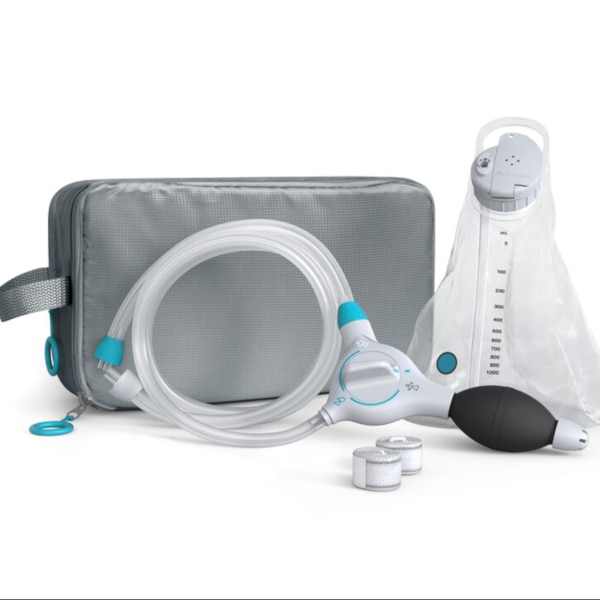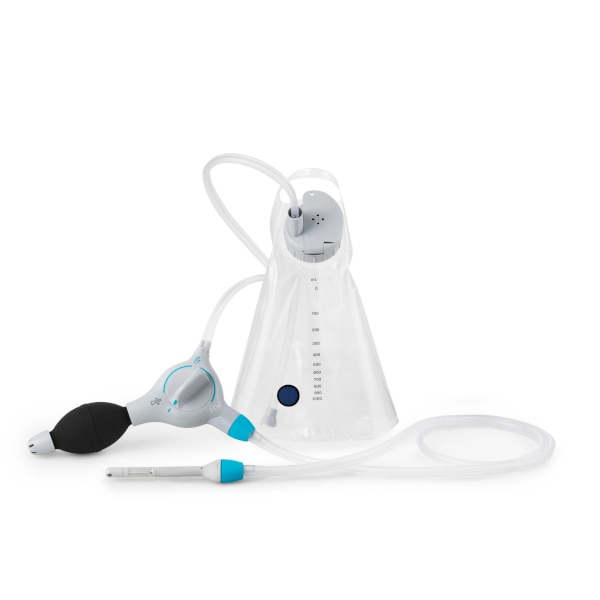All about your digestive system
The digestive system performs a fascinating but complex process. It consists of organs responsible for breaking down food, absorbing nutrients and eliminating waste products.
The small intestine
The digestive process starts in the upper digestive organs and the small intestine. As you swallow your food, it travels through your esophagus to your stomach where it is broken down into smaller pieces and mixed with digestive fluids. The now liquid mix of food and stomach juice is passed to the small intestine, where digestion continues and most nutrients, vitamins and minerals are absorbed.
The large intestine
After the food has been digested and absorption has occured, the food waste continues down the path and into the large intestine, often referred to as the "colon". In the first part of the large intestine water and salts are absorbed, which creates stool as the waste products become more firm to be evacuated by the lower part of the colon. The stool is then pushed through the intestine towards the rectum by a series of muscle contractions, known as peristalsis.
The time it takes for food to pass through the digestive system is called the transit time. It changes from person to person, but the average transit time for women is 2.4 days and 1.9 days for men.
Please note that factors such as diet and medications, for example, affect bowel transit time. Talk to your provider about your specific transit time and the impact this may have on your irrigations.
The rectum
When stool reaches the end of the colon, it passes into the rectum, where it is stored. As the rectum fills with stool, it distends. This triggers nerve signals that are sent to our brain, making us aware that it’s time to find a toilet. At the same time, the internal sphincter relaxes by reflex and stool moves down towards the anus and gets expelled. Both the internal and the external anal sphincters are contracted between bowel movements, helping to keep the individual continent and preventing leakage.
Spina bifida, spinal cord injury and other congenital diseases may lead to a dysfunction in how the sphincters work together leading to bowel dysfunction.
Information from Coloplast® Care is for educational purposes only. It is not intended to substitute for professional medical advice and should not be interpreted to contain treatment recommendations. You should rely on the healthcare professional who knows your individual history for personal medical advice and diagnosis. Prior to use refer to product labeling for complete product instructions for use, contraindications, warnings and precautions.
Indication: The Peristeen® Plus Transanal Irrigation System is intended to instill water into the colon through a rectal catheter, which incorporates an inflatable balloon, inserted into the rectum to promote evacuation of the contents of the lower colon. The Peristeen Plus Transanal Irrigation System is indicated for use by children (2 years - <12 years old), adolescent (12 years - < 18 years old), transitional adolescent (18 - <21 years old) and adult patients with neurogenic bowel dysfunction who suffer from fecal incontinence, chronic constipation, and/or time-consuming bowel management procedures.
Contraindications: Peristeen Plus Transanal Irrigation must not be used in the following situations: known anal or colorectal stenosis, colorectal cancer (active/recurrent), radiotherapy to the pelvis, and recent abdomino-perineal surgery, active inflammatory bowel disease, acute diverticulitis, severe diverticulitis, previous diverticulitis and diverticular abscess, chronic symptomatic diverticular disease, within 3 months of abdominal, anal or colorectal surgery, within 4 weeks of endoscopic polypectomy, recent colonic biopsy, recent endoscopic mucosal resection (EMR) and recent endoscopic sub-mucosal dissection (ESD), severe autonomic dysreflexia, ischemic colitis, during Spinal Cord Shock Phase, complex diverticular disease, in patients who are pregnant and have not used the system before*. Since the list is not exhaustive, the healthcare professional should always consider individual patient factors as well. *If the patient is pregnant and has never used transanal irrigation before, they should not start the irrigation procedure during pregnancy.
Warnings: Peristeen Plus Transanal irrigation procedure should always be carried out with caution. Bowel perforation is an extremely rare, but serious and potentially lethal, complication to transanal irrigation and will require immediate admission to a hospital, often requiring surgery. See the device manual for complete user instructions, contraindications, warnings, precautions, and potential complications/adverse events. For further information, call Coloplast Corp at 1-855-605-7594 or consult the company website at www.coloplast.us. Caution: Federal law restricts this device to sale by or on the order of a physician.



